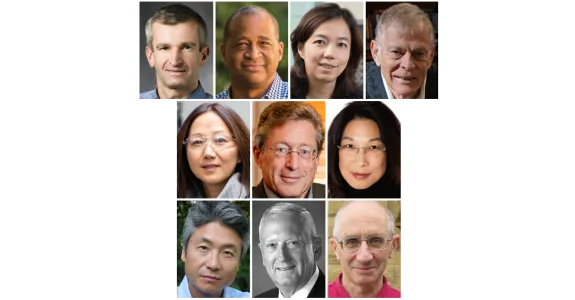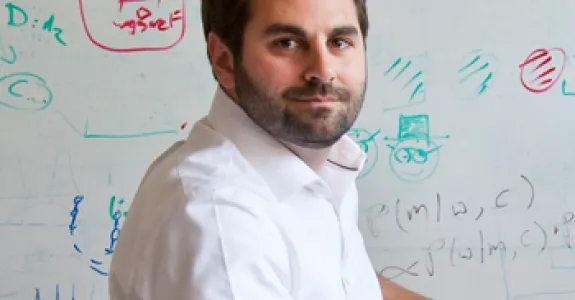AI spring begins (million times more computer desugned for deep learning;
what other tech launched:
Oculus Rift in 2012. this specs tool was expected to hasten metaverse (though ai chat 2023 took over as channel to web 3)
ai what happened in 2012 : Stanford's Fei-Fei Li is in her 13th year of changing computing-neuroscience - at 3rd world championships of can comouters be trianed to see the first 20000 oudentitied kids develop vision with, Neural Network algorithms Alex make big break throough
Alex is supplied by Hinton grad team alex and ilya suskever buildining on woek Lecun & Hinton started late 1980s with Lecon AI US postcodes being most popular example
this wakes up every valley vc and companied leadung digtal engineering;
in the westthere are only 2 entrepreneurs with as much experence as LI
Hassabis in london whose in his 13th year as doctirate bring games to deep learning - his startup is called deepmind; its merged with google deep brainn 2014
Jensen Huang - Nvida has been designing new accelerated comouter power since 1993 - games were first bifg client - some climate and life scientists started being interested from 2005 as well as Tawan where the chip foundry f mauruce chang leads the world; stanfird's andrew ng with bioscientist daphne koller (co-founders od moocs) inform Huang curca 2008 that deep learning AI will be big and stanford is arranging (annual competion ost) Fei-Fei Li
-so as soon as Huang sees Li's breakthrough 2012 he bets nvidia on designing worlds iggest chips starting with 80 billion transistir grace hopwell (this takesover from arm in cambrdge s largest chip from 2016)
in 2014 huang and melinda gates are founding sonsirs of education and womens AI NGO Ai-4-all
here is standord bio-x bio of fei-fei li as posted may 2024
Fei-Fei Li - Sequoia Capital Professor and Professor (by courtesy) of Operations, Information & Technology at the Graduate School of Business

Dr. Fei-Fei Li is the inaugural Sequoia Professor in the Computer Science Department at Stanford University, and Co-Director of Stanford’s Human-Centered AI Institute. She served as the Director of Stanford’s AI Lab (SAIL-Toyota) from 2013 to 2018. During her sabbatical from Stanford from January 2017 to September 2018, she was Vice President at Google and served as Chief Scientist of AI/ML at Google Cloud.
Dr. Fei-Fei Li’s current research interests include cognitively inspired AI, machine learning, deep learning, computer vision and AI+healthcare especially ambient intelligent systems for healthcare delivery. In the past she has also worked on cognitive and computational neuroscience. Dr. Li has published more than 200 scientific articles in top-tier journals and conferences, including Nature, PNAS, Journal of Neuroscience, CVPR, ICCV, NIPS, ECCV, ICRA, IROS, RSS, IJCV, IEEE-PAMI, New England Journal of Medicine, Nature Digital Medicine, etc. Dr. Li is the inventor of ImageNet and the ImageNet Challenge, a critical large-scale dataset and benchmarking effort that has contributed to the latest developments in deep learning and AI. In addition to her technical contributions, she is a national leading voice for advocating diversity in STEM and AI. She is co-founder and chairperson of the national non-profit AI4ALL aimed at increasing inclusion and diversity in AI education.
The Stanford Vision and Learning Lab (SVL) at Stanford is directed by Professors Fei-Fei Li, Juan Carlos Niebles, and Silvio Savarese. The lab is tackling fundamental open problems in computer vision research and are intrigued by visual functionalities that give rise to semantically meaningful interpretations of the visual world. Their research addresses the theoretical foundations and practical applications of computational vision. They are focused on discovering and proposing the fundamental principles, algorithms and implementations for solving high-level visual perception and cognition problems involving computational geometry, automated image and video analysis, and visual reasoning. At the same time, their curiosity leads us to study the underlying neural mechanisms that enable the human visual system to perform high level visual tasks with amazing speed and efficiency.
Stanford Bio-X Fellows Mentored by Fei Fei Li
Stanford Bio-X Seed Grants
Computational methods for characterizing children's first-person social experiences
Research News

Ten Stanford faculty members elected to the American Academy of Arts and Sciences
April 22, 2021 - Stanford Today
Congratulations to Stanford Bio-X affiliated faculty members and Clark Center resident faculty Axel Brunger and...

Computer vision technology could aid ICU care by spotting movement
March 25, 2019 - Stanford Medicine Scope
Stanford researchers including Bio-X affiliate Fei-Fei Li are tackling the problem of post-intensive care...

Improving patient safety with bedside computer vision
April 5, 2018 - Stanford Medicine Scope
Can computers carry out hospital safety-monitoring tasks better than humans? A research team including...
we find logs at GTC summit an interesting fiest place to





No comments:
Post a Comment